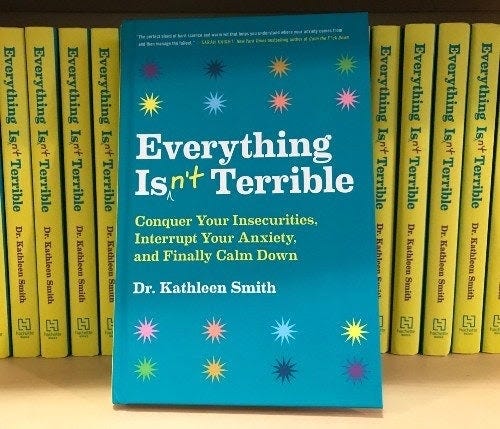The other day I sent the obligatory, superficial Happy Birthday! text to a friend in a group chat.
Seconds later, I asked myself (as I do after most human interactions), Why am I doing this?
I did not need an audience for this message. I was not responsible for other people remembering this person had a birthday. Yet it was more comfortable and convenient to keep my sentiments within the group.
Later in the day, I sent an email to my child’s teacher. I almost signed my husband’s name after mine, but I caught myself. I remembered that he gets to represent himself in that relationship, which he does very well.
In observing his own family, Dr. Murray Bowen noticed that people “tend to group themselves into emotional clumps and the communication is often from ‘clump to clump’ rather than from individual to individual.”*
I think a lot of people, myself included, bounce from clump to clump throughout the day. From work meetings, to the family group text, to the school listserv, to book club, we fill our social needs in ways that don’t take much of what Dr. Bowen called “emotional courage.”
Signs of the clumpiness (sometimes called “togetherness”) might include:
Sending a letter/email and signing it from the whole family.
Losing contact with a whole friend group because two people no longer get along.
Needing to bring your spouse and/or kids along to spend time with your parents.
Only seeing a group of friends when most can be present.
Always having both parents on the phone when you call.
Only connecting with colleagues in group meetings.
Needing someone from your nuclear family present when visiting with extended family.
Only providing life updates on social media.
Needing the whole family to participate in therapy.
Wanting to present a “united front” as parents toward a child.
Only talking about your shared group (family, school, work, church, etc.) when meeting one-on-one with someone.
It is deeply uncomfortable to have a conversation about yourself with most people. We tend to talk about other people, the weather, or the rage-inspiring news of the day. Last week, I probably talked about Queen Elizabeth’s coffin-viewing queue with more people than I shared my own challenges and beliefs.
There’s nothing wrong with small talk, or with being part of a group. But we also need person-to-person relationships. Without them, you’re likely to perceive a group as unsatisfying, or too overwhelming.
Without person-to-person relationships:
We are more vulnerable to the demands of the group.
We feel more jealous of/reactive towards the closeness of others in the group.
We are more susceptible to adopting beliefs/behaviors that keep everyone happy.
We are more likely to abandon the group all together when tension rises.
So this week, try asking yourself, these questions:
Where is there room for some emotional courage in how I relate to others?
When can I de-clump my interactions into individual efforts?
How can I define myself to others, and let them do the same?
Person-to-person relationships don’t eliminate the need for groups. Instead, they give you more breathing space and flexibility within them. They help you be yourself, regardless of who shows up to the meeting.
News from Kathleen
Want to support my free newsletter? Buy me a coffee to keep the thoughts flowing or share it with a friend.
Want to read more of my writing? You can read old newsletters at my website, or buy my book Everything Isn't Terrible from Amazon, Barnes and Noble, Indiebound, or your local bookstore (best option).
Want a free anxiety journal with the book? Calming Down & Growing Up: A 30 Day Anxiety Journal includes thirty daily prompts to help you reflect on and respond to your anxious behaviors. To receive a copy, just email me your receipt of Everything Isn’t Terrible.
Email me if you’re interested in Bowen theory coaching or want me to speak to your group or workplace. Follow me on Twitter, Facebook, or Instagram.
Want to learn more about Bowen theory? Visit the Bowen Center’s website to learn more about their conferences and training programs.
*Family Therapy in Clinical Practice, pg. 499.






Thanks, I've always wondered why people at church will say, "WE missed you." I want to ask 'did you talk about me? did you, like, take a vote?'
I'll be rereading this newsletter. Several things resonated about my relationships with coworkers and with a friend in particular.